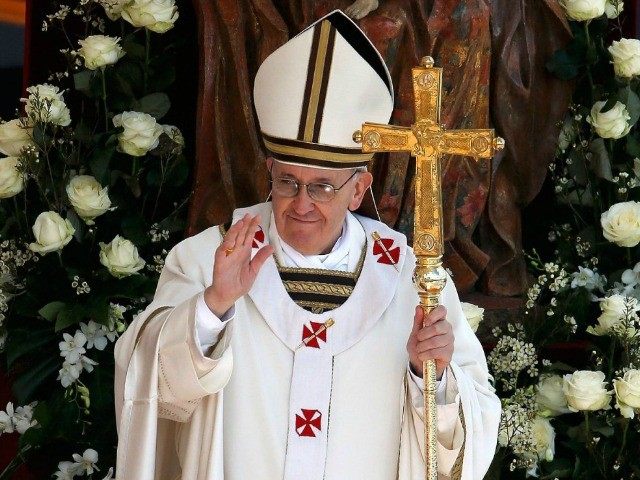In his interreligious meeting with more than 1,000 representatives of Sri Lanka’s four major religious communities—Buddhist, Hindu, Muslim and Christian—Pope Francis called on leaders to denounce acts of violence committed in the name of religion.
“For the sake of peace,” Francis said, “religious beliefs must never be allowed to be abused in the cause of violence and war. We must be clear and unequivocal in challenging our communities to live fully the tenets of peace and coexistence found in each religion, and to denounce acts of violence when they are committed.”
Francis’ visit follows on the heels of recent elections in which Sri Lanka’s wartime leaders were voted out of power. Sri Lanka’s bloody, 26-year civil war only ended in 2009, and lines were drawn along religious lines. The civil war, which claimed more than 40,000 lives, was fought between the mainly Hindu Tamils and the mostly Buddhist Sinhalese.
“It is a continuing tragedy in our world that so many communities are at war with themselves,” Francis said in his address at the airport Tuesday morning. “The inability to reconcile differences and disagreements, whether old or new, has given rise to ethnic and religious tensions, frequently accompanied by outbreaks of violence.”
Francis’ address Tuesday afternoon at the interreligious encounter was preceded by a Buddhist chant, Hindu and Muslim blessings, and a prayer by the ecumenical group.
Pope Francis reiterated the Catholic Church’s “deep and abiding respect” for followers of other religions. The Church “has a high regard for their manner of life and conduct, their precepts and doctrines,” he said.
The Pope also insisted that for interreligious dialogue to be fruitful, “it must be grounded in a full and forthright presentation of our respective convictions.” Here Francis was building upon a favorite theme of his predecessor, Pope Benedict XVI, who in 1984, even before being elected pope, wrote that “dialogue is possible only on the foundation of a clear identity. One can, one must be ‘open,’ but only when one has something to say and has acquired one’s own identity.”
Francis acknowledged that such clarity “will accentuate how varied our beliefs, traditions and practices are.” But he also expressed his hope that “if we are honest in presenting our convictions, we will be able to see more clearly what we hold in common. New avenues will be opened for mutual esteem, cooperation and indeed friendship.”
“For too many years the men and women of this country have been victims of civil strife and violence,” Francis said. “What is needed now is healing and unity, not further conflict and division.”
Francis also suggested that Sri Lankans could bear witness to how religiously pluralistic societies can live in peace. “It is my hope,” he said, “that interreligious and ecumenical cooperation will demonstrate that men and women do not have to forsake their identity, whether ethnic or religious, in order to live in harmony with their brothers and sisters.”
Follow Thomas D. Williams on Twitter @tdwilliamsrome.

COMMENTS
Please let us know if you're having issues with commenting.